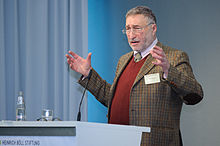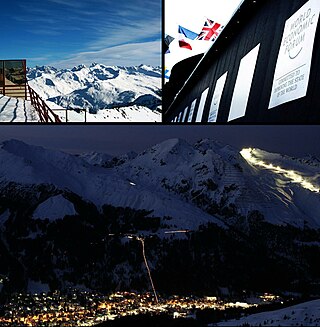
Davos is an Alpine resort town and a municipality in the Prättigau/Davos Region in the canton of Graubünden, Switzerland. It has a permanent population of 10,832 (2020). Davos is located on the river Landwasser, in the Rhaetian Alps, between the Plessur and Albula Ranges.

Marcel Reich-Ranicki was a Polish-born German literary critic and member of the informal literary association Gruppe 47. He was regarded as one of the most influential contemporary literary critics in the field of German literature and has often been called Literaturpapst in Germany.

Wilhelm Scherer was a German philologist and historian of literature. He was known as a positivist because he based much of his work on "hypotheses on detailed historical research, and rooted every literary phenomenon in 'objective' historical or philological facts". His positivism is different due to his involvement with his nationalist goals. His major contribution to the movement was his speculation that culture cycled in a six-hundred-year period.
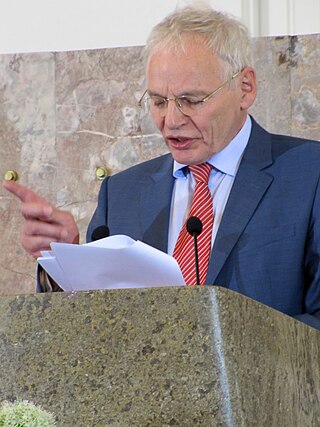
Götz Haydar Aly is a German journalist, historian and political scientist.

Ricarda Huch was a pioneering German intellectual. Trained as a historian, and the author of many works of European history, she also wrote novels, poems, and a play. Asteroid 879 Ricarda is named in her honour.
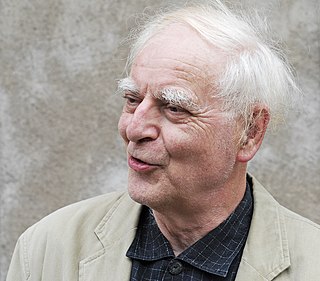
Adolf Muschg is a Swiss writer and professor of literature. Muschg was a member of the Gruppe Olten.
Ernst-Jürgen Dreyer was a German writer, translator, playwright and musicologist.
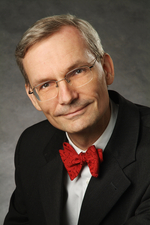
Michael F. Feldkamp is a German historian and journalist.
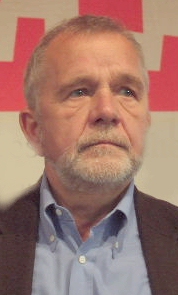
Rüdiger Safranski is a German philosopher and author.

Angelika Overath is a German author and journalist.

Wolfgang Benz is a German historian and anti-semitism researcher from Ellwangen. He was the director of the Center for Research on Antisemitism of the Technische Universität Berlin between 1990 and 2011, and is also a member of the advisory board for the Memorial to the Murdered Jews of Europe and was involved in the memorial's design. He has written or published over 200 works. He is considered to be one of the most renowned and well-known historians in modern Germany, and one of the foremost scholars on anti-semitism studies. He has been referred to as the "doyen" of anti-semitism research.
Martin Lüdke is a German literary critic.
Sybille Steinbacher is a German historian. Since May 2017 she has been Professor of Holocaust Studies at Goethe University Frankfurt.

Kai Wegner is a German politician of the Christian Democratic Union (CDU) who has been serving as Governing Mayor of Berlin since April 2023. He served as a member of the Bundestag, the German federal parliament, from 2005 to 2021. In 2019, he became the chairman of the CDU in Berlin.
Michael Maaser is a German historian, archivist of the Goethe University Frankfurt.
Notker Hammerstein was a German historian. His research interests were mainly in the field of University history and history of science as well as the history of the Holy Roman Empire of the German Nation.
Anton Schindling was a German historian. He held chairs at the Catholic University of Eichstätt-Ingolstadt (1985–1987), the University of Osnabrück (1987–1995) and the University of Tübingen (1995–2015). Thematically he worked on the history of education, the age of Confessionalization and the Holy Roman Empire. He was one of the leading early modern researchers in Germany.
Hans-Christof Kraus is a German historian.

Anca Miruna Lăzărescu is a German-Romanian film director. For her film work, she has received a nomination for the European Film Award. She directed the international drama series Hackerville (2018) for HBO and TNT Serie as well as the German Netflix series We Are the Wave (2019) and the third season of the Amazon Prime series Hanna.
Günther Binding is a German art historian and retired professor of art history and urban conservation at the University of Cologne.
